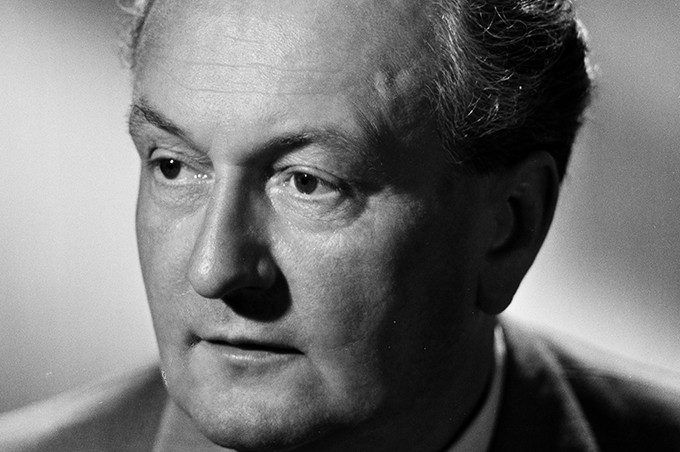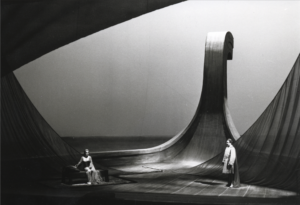03 November 2023
Philip Jenkins
Karajan artists: Wolfgang Windgassen – tenor for all Wagner roles

In many cases, it is the recording legacy that shapes the impression we have today from a singer Karajan worked with.
Wolfgang Windgassen may not be seen as a typical and frequently booked Karajan singer because they didn’t make a studio recording but in fact, he was one of the absolutely indispensable protagonists in Karajan’s era as manager of the Vienna State Opera – especially for Wagner roles. Just as an example: In the two and a half weeks before his premiere as Siegfried in “Götterdämmerung” in June 1960, Windgassen not only rehearsed at the State Opera but also appeared in performances as Siegfried in “Siegfried”, Siegmund, Loge and Tristan!

It started in 1951. Karajan conducted his only Bayreuth “Ring”, Windgassen sang the small part of Froh in “Rheingold”. The following January, they performed “Fidelio” in Milan. Richard Osborne reported:
“The Milan Fidelio passed off successfully enough, a virulent stomach bug notwithstanding. Florestan’s cry ‘Gott, welch Dunkel hier’ was turned by a clearly discomfited Wolfgang Windgassen into ‘Gott, welch’ dunkles Bier’ as he headed for the lavatory at the end of the dungeon scene. ‘You should have let me know,’ said Karajan afterwards. ‘I would have conducted faster.’”
In the following year, it was “Lohengrin”, also at the Scala (with Elisabeth Schwarzkopf as Elsa). During Karajan’s era at the State Opera, Windgassen appeared 51 times as Siegmund, Siegfried (in “Siegfried” and in “Götterdämmerung”), Loge and Stolzing. His Tristan (with Birgit Nilsson) was praised enthusiastically. H.C. Robbins Landon wrote: “The end was unspeakably beautiful.”

A singer as reliable as Windgassen caused a disaster when he failed to turn up at a “Meistersinger” performance at the State Opera in 1963 – through no fault of his own. The audience had to be sent home. Windgassen was neither thoughtless, nor was he ill. “The problem was, he did not know he was meant to be singing in Vienna that evening. (Richard Osborne)” This lapse of organization was, according to Osborne, “the beginning of the end of Karajan’s period of rule”. In the same year, Windgassen added Tannhäuser to his impressive repertoire at the Vienna State Opera and appeared in a complete “Ring” cycle for the last time with Karajan. After Karajan’s resignation in 1964, they never worked together again.

We’ve prepared playlists with Karajan and Wolfgang Windgassen. Listen to them here.
— Philip JenkinsRichard Osborne: “Karajan. A Life in Music” Chatto & Windus, London. 1998




